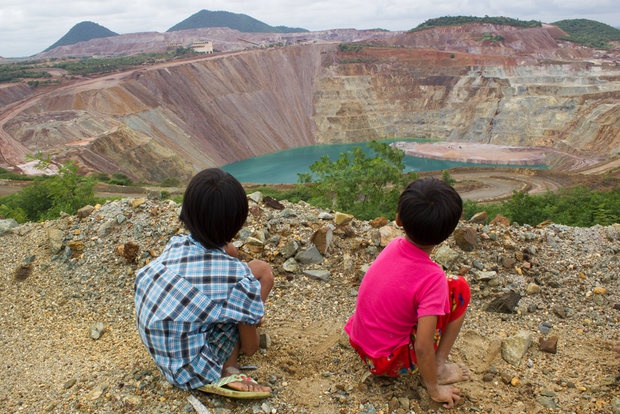China plans to raise environmental standards in its highly-polluting mining sector, according to a policy draft circulated by the Ministry of Environmental Protection.
Amid rising concerns about the state of its environment, China has declared war on polluters and has drawn up new laws, standards and punishments aimed at forcing firms and local governments to toe the line.
The mining sector has been a crucial part of China’s rapid economic expansion in the last three decades, but poor regulation and weak enforcement of standards has contaminated much of the country’s soil and left parts of its land and water supplies unfit for human use, threatening public health.
According to draft rules published on the website of the Ministry of Environmental Protection (MEP) late last week, miners will be forced to treat more than 85 percent of their wastewater, and they must put systems in place to achieve the “comprehensive utilization” of tailings and other solid waste.
Firms will also be forced to implement measures to remediate land and minimize emissions while mines are still in operation, rather than treating soil and water long after it has been contaminated.
Mining firms will also be pressured to implement measures to protect or even relocate valuable ecosystems. Producers of toxic heavy metals like lead or cadmium also need to make use of biological or chemical technologies to remediate contaminated soil.
The new rules will cover metals such as tin, copper, lead and rare earths, as well as minerals like calcium carbonate, though they do not apply to the coal industry, which has separate guidelines.
Other government bodies and state-owned mining firms like Jiangxi Copper and Yunnan Tin have been invited to submit their opinions on the draft rules before 25 August.
As much as 16 percent of China’s soil exceeds state pollution limits, according to environment ministry data published in 2015, and farming on 3.3 million hectares (8.15 million acres) of contaminated land across the country has been banned indefinitely.
[related]
China published an action plan to treat soil pollution earlier this year, saying that it aimed to bring the problem under control by 2020.
However, the cost of making China’s contaminated land fit for crops or livestock could reach around 5 trillion yuan ($750 billion), according to Reuters calculations.
China also invests heavily in mining operations in countries around the world. In neighbouring Burma, the Chinese-backed Letpadaung copper mine has been the target of persistent criticism from local communities that accuse it of causing widespread environmental damage.



